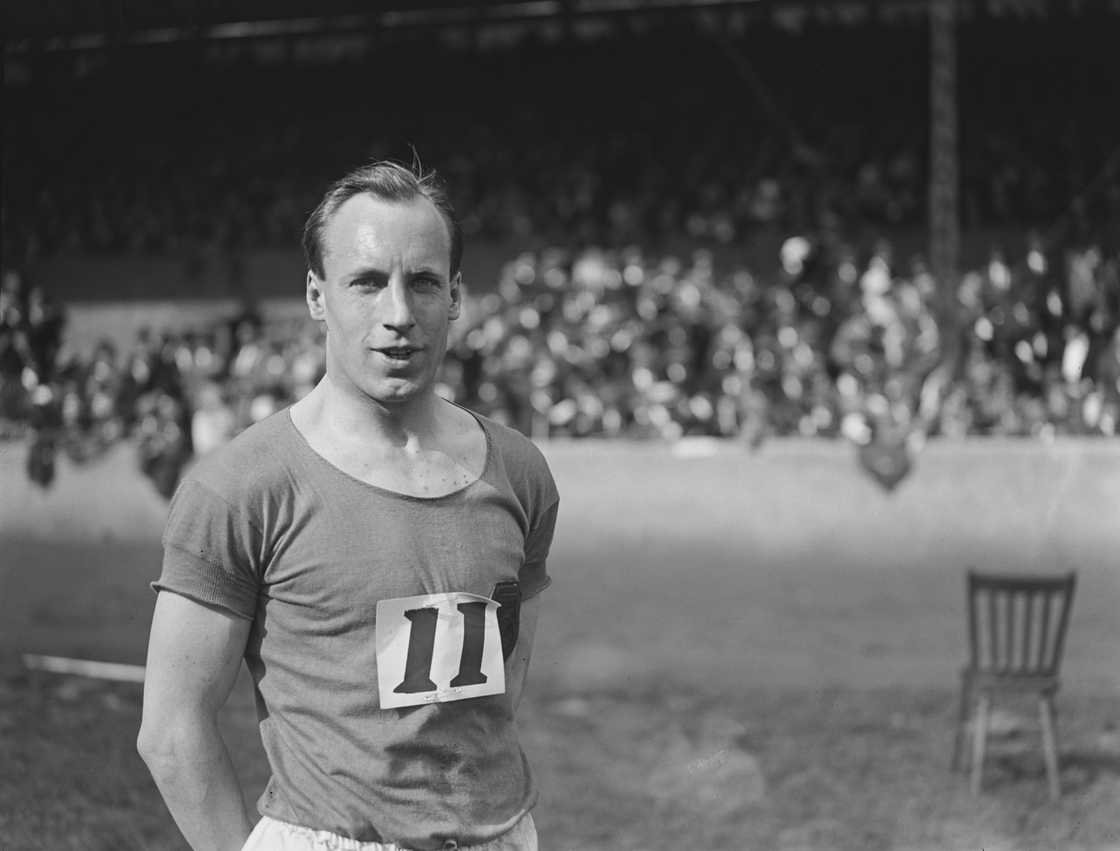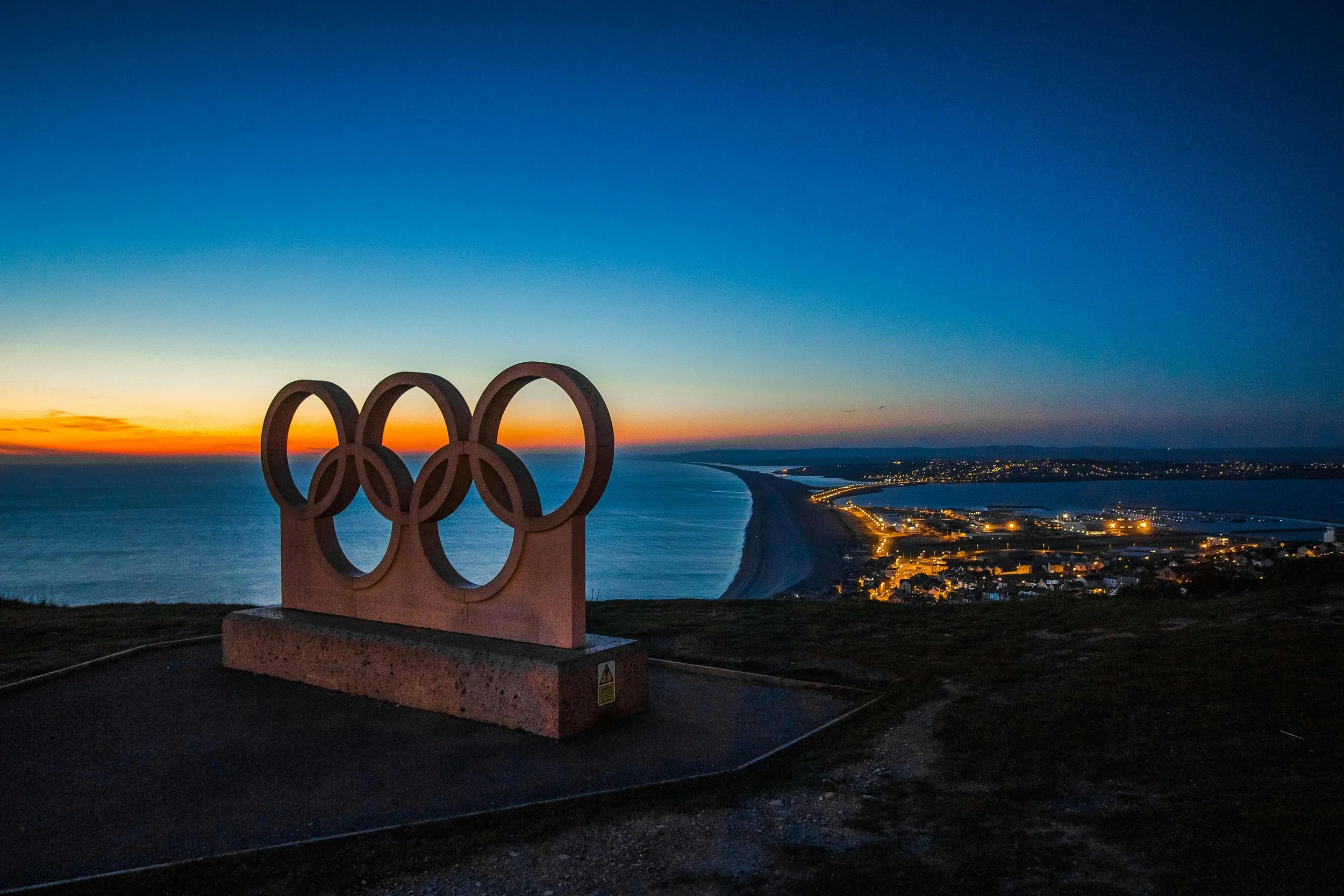ERIC LIDDELL FOR THE GLORY OF GOD
On 26th July millions of people watched the opening ceremony of the Olympic Games in Paris. The event marks 100 years since the Games were last held there, in 1924. The 1981 Oscar-winning movie, Chariots of Fire, portrays two men aiming for Olympic glory at the 1924 Games, Harold Abrahams – running for glory and acceptance – and Eric Liddell, running in obedience to God. The film ends with these few brief words, “Eric Liddell, missionary, died in occupied-China at the end of World War II. All of Scotland mourned.” He was a man who ran his race in obedience to Jesus Christ.
Liddell’s Background
Eric Liddell was born in China, on 16th January 1902, where his parents served with the London Missionary Society. At school in England Eric and his brother, Rob, excelled at sports – cricket, rugby and athletics. During his university years in Edinburgh Eric never lost in a 100-, 220- or 440-yard race. It was remarked, however, that his style of running was curious, with his arms swinging high, his knees lifting nearly to his chest, and nearing the finish throwing his head so far back that “his eyes, if they had been open, would have seen only sky”.
1924 Paris Olympics
Eric was selected to compete for Great Britain at the 1924 Paris Olympics. However, the heats for the 100m, the 4 x 100m relay and the 4 x 400m relay, were to be held on the Sabbath. He had a choice: obey God and not run, or disobey God and run. For Eric the choice was simple: he made it perfectly clear he would take no part in any events scheduled for the Lord’s Day. D.P Thomson, a life-long friend of Eric’s, commented, “That decision there was no hope of changing. It was based on principles from which he never deviated a hair’s breadth.”
Instead, just a few months out from the Olympics, Eric started training for the 200m and the 400m events.
The final of the 400m was run on 11th July. Eric Liddell had qualified for the final and was drawn in the outside lane. At 6.30pm the 400m finalists lined up. The gun went and the crowd cheered as the athletes raced down the cinder track. Harold Abrahams, who was watching on in the stand, said of the race, “From the start [Liddell] ran like a man inspired. He set off at a pace which looked so ludicrously fast that we expected him to crack when the home straight was reached.” But he didn’t crack. Instead he won gold, setting a new world record of 47.6 seconds.
Mission Work in China
For athletes all around the world, winning Olympic gold is the ultimate achievement. But what do you do next?
In 1925 Eric returned to China, the land of his birth, in obedience to a sense of call from God to serve Christ as a missionary teacher. He joined his parents and brother in the Anglo-Chinese College in Tientsen. He also coached and competed in athletics. He married Florence Mackenzie, from a family of Canadian missionaries, on 27th March 1934. They had three daughters, one of whom Eric would never get to meet.
In July 1937 Japan invaded China, triggering the Second Sino-Japanese War. The Japanese soon captured Beijing and most of the large cities of China. The London Mission Society approached Eric about the possibility of ministering to those in the war-torn Chinese countryside, in Siao Chang, while his family remained in Teintsen. There were over 10,000 villages in Siao Chang and Eric’s work involved travelling form village to village, encouraging the Christians and holding evangelistic meetings. On one occasion he picked up two Chinese men, victims of botched executions by Japanese soldiers. He rescued them, cared for them, and though one died the other survived and was brought to faith in Christ.
With violence and unrest growing, missionaries were no longer safe in China. Eric travelled back to Teintsen where Florence was expecting their third child. Reluctantly they decided that it would be safer for her and the girls to leave China. Eric put them on a boat to Canada while he remained in China to continue his work. He would never see them again.
War and Prison
In December 1941 Japan attacked Pearl Harbor, prompting America’s entry into World War II. In 1942 the Japanese had banned all meetings of more than 10 people. In March 1943 they stated that all foreigners considered enemies should be put into Civilian Assembly Centres; for Eric this was the Weihsien Internment Camp. More than 2,200 civilians were interned for all or part of the time the camp was open. There were British, American, Canadian, Australian, Italian, Dutch, Belgian, Russian, and other nationalities. There were also more than 350 children among the internees, of whom 100 were separated from their parents throughout the war.
Eric Liddell would spend the rest of his life on earth in Weihsien. But even here in the camp his thoughts again turned to service and to obedience to his risen Saviour. Eric organised a teaching class where he taught chemistry. Without equipment and textbooks he spent hours sketching experiments and writing his own textbooks from memory. He also organised athletic events for the children.
He stood out among all the people packed into one area of the camp. Known as the Olympic gold medallist who wouldn’t run on a Sunday, the children just called him Uncle Eric. Written reports from those in the camp refer to him as a humble man with a gentle face and warm smile. It was said that his best feature was his eyes, “level and unafraid, they were blue and honest and they knew how to twinkle!”
Despite the weakening condition of people Eric Liddell maintained his enthusiasm. Most importantly, he proclaimed Christ, speaking at the Weishang Christian Fellowship organised within the camp. By the flickering light of a peanut-oil lamp, early each morning he spent time reading and studying God’s Word and praying. In the darkness of the awful camp, Eric Liddell’s faith and obedience shone bright.
Eric’s Final Days on Earth
Eric’s health deteriorated as he started to get severe headaches. He also deeply felt the pain of separation from his family. From the camp hospital he wrote to his wife, “was carrying too much responsibility. Had slight nervous breakdown. Much better after a month in hospital. Special love to you and the children, Eric.”
Within a few days of writing this note Eric slipped into a coma and died shortly thereafter, from a brain tumour, on 21st February 1945. He was 43 years old. The athlete who refused to run on a Sunday was now, 21 years later, crossing the finish line in his final race on earth. News of his death prompted national mourning in Scotland.
Eric would often preach on loving your enemies. One young internee who heard these words wrote, “Eric’s modesty meant he rarely talked about his own achievements. He did however, impart the greatest challenge to my life – ‘You should pray for the Japanese.’ Was it really possible to pray for the men who had incarcerated us… and stood guard over us with guns? For jailers who kept me apart from my family?” This young man was Steven Metcalf, who would go on to be a missionary in Japan!
Eric Liddell’s Legacy
In 2002, the Scottish Sports Hall of Fame was set up, and Eric Liddell topped the public vote for the most popular sporting hero Scotland had ever produced. He was also inducted into the Scottish Rugby Hall of Fame in January 2022, on the centenary of his first international cap. China also claims him as their first gold medalist.
Eric Liddell’s motto was “it is surrender”. He was obedient to God’s Word because this was his expression of love to the God who had first loved him. He obeyed even when it looked like it would cost him. He ran his race in obedience to Jesus Christ.
On the 100th anniversary of Eric Liddell’s Olympic gold it is good for us to consider: are we prepared to follow Jesus Christ, wherever and however he guides, no matter the cost?



